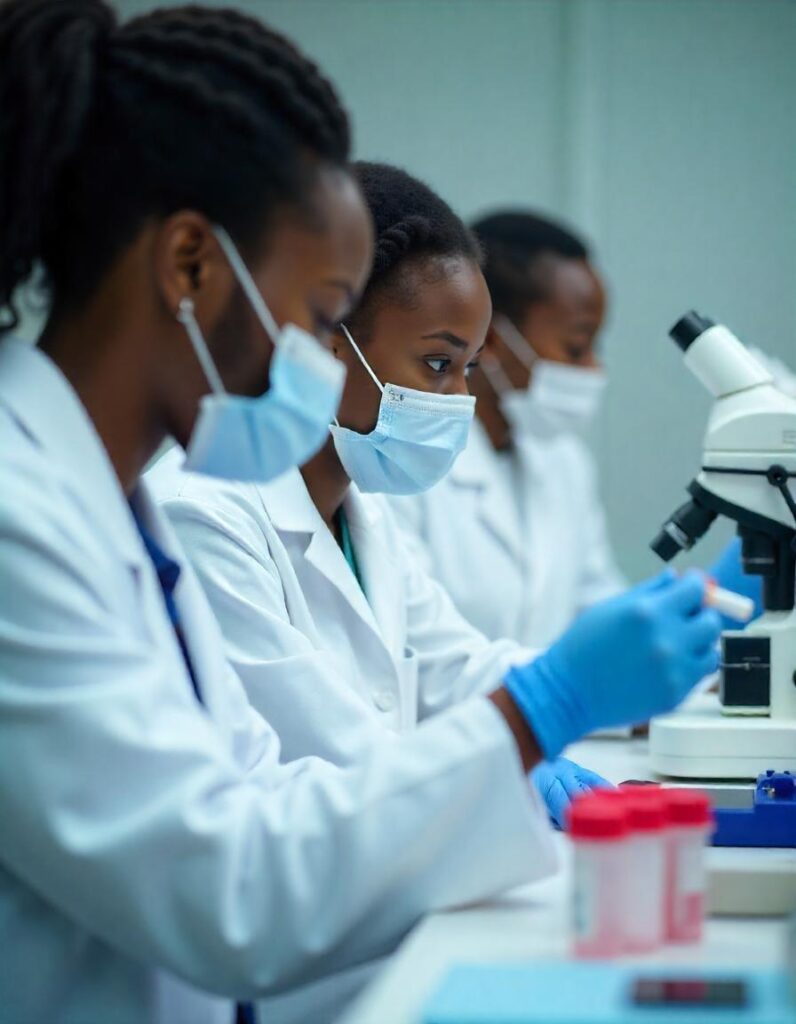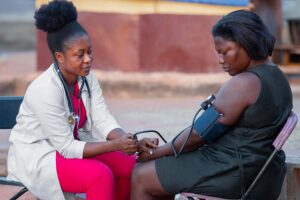Bone marrow donation is an essential, life-changing process that can save countless lives. It plays a vital role in treating diseases such as leukemia, lymphoma, and other blood disorders. In Nigeria, the awareness of bone marrow donation is increasing, but many still don’t fully understand the process or its significance. This guide explains how bone marrow donation works, its life-saving potential, and how you can contribute to this noble cause.
Understanding Bone Marrow Donation: A Life-Changing Act
Bone marrow is a spongy tissue found inside your bones that is responsible for producing blood cells. It plays a crucial role in creating red blood cells, white blood cells, and platelets. When someone’s bone marrow is damaged or diseased, they may need a bone marrow transplant to survive. Diseases like leukemia, anemia, and sickle cell disease can cause a person’s bone marrow to malfunction, leaving them unable to produce healthy blood cells. This is where bone marrow donation comes into play.
By donating bone marrow, you can help these patients regain the ability to produce healthy blood cells and potentially save their lives. While it may sound intimidating, the donation process is straightforward, and advances in medical technology have made it safer and less invasive than ever before.
Who Can Benefit from Bone Marrow Donation?
The recipients of bone marrow donations are often people suffering from life-threatening conditions like leukemia, lymphoma, or severe aplastic anemia. A bone marrow transplant may also be necessary for those with genetic blood disorders such as sickle cell disease.
By donating your bone marrow, you become a lifeline for someone in need. A single donation can be the difference between life and death for a patient.
The Bone Marrow Donation Process: Step-by-Step
The bone marrow donation process is designed to be as safe and smooth as possible for both the donor and recipient. Below is a breakdown of the process:
1. Registration
The first step to becoming a bone marrow donor is registering with a donor registry. In Nigeria, organizations like Oneus provide easy ways to get involved. You will be asked to complete a health questionnaire and provide a cheek swab sample. This helps determine your bone marrow type, which is crucial for matching you with a recipient.
2. The Match
Once you are registered, your details will be stored in a database. If you match a patient in need, you will be contacted to proceed with further testing. A successful match depends on several factors, including blood type, Rhesus factor, and genotype. Matching is important to ensure the best chance of a successful transplant and to minimize the risk of complications.
3. Donation Methods
There are two primary methods of bone marrow donation:
-
Peripheral Blood Stem Cell (PBSC) Donation: This is the most common method today. The donor is given a medication for several days to stimulate the production of stem cells in the bloodstream. These stem cells are then collected through a process similar to donating plasma, where blood is drawn, filtered, and returned to the donor.
-
Bone Marrow Aspiration: In this method, bone marrow is directly extracted from the donor’s pelvic bone. It is done under local anesthesia, and the procedure usually takes one to two hours.
4. Post-Donation Care
After donation, most donors feel fatigue for a few days, but the recovery process is quick. Your body will regenerate the donated marrow within a few weeks. Donating marrow is safe and has minimal risks, but as with any medical procedure, there can be side effects such as temporary soreness or discomfort.
The Importance of Bone Marrow Donation
Donating bone marrow is a powerful way to give back to those in need. According to the World Health Organization (WHO), there is a constant shortage of bone marrow donors, especially in countries like Nigeria. Many patients are left without a suitable match, which can drastically reduce their chances of survival.
By donating, you not only provide hope to individuals but also help strengthen healthcare systems and improve the overall quality of care for patients in need. The importance of bone marrow donation cannot be overstated—without it, many patients face grim odds.
The Unique Role of Oneus in Nigeria
Oneus is at the forefront of educating Nigerians about the importance of blood donation, including blood plasma donation and bone marrow donation. Their platform offers a comprehensive resource for individuals looking to donate blood, plasma, or bone marrow, making it easier for donors to find donation centers and participate in life-saving drives.
Oneus’s commitment to educating the public about the benefits of blood donation, including the positive effects on skin health, and the importance of genotype and Rhesus factor in the matching process, sets them apart in this vital health initiative.
If you are interested in donating bone marrow, plasma, or simply want to learn more about blood drives, Oneus provides detailed guidance and easy access to donation opportunities. They offer resources for finding plasma centers, blood donation websites, and much more.
Why You Should Give Blood and Bone Marrow
By donating blood or marrow, you contribute to a cause greater than yourself. With the increasing demand for blood, platelets, and marrow, your donation can be life-saving. Whether it’s donating at a blood bank, joining a blood drive, or participating in plasma or stem cell donation, every act counts.
You can also help by spreading the word. Encourage friends and family to donate or register to donate blood, plasma, or bone marrow. Remember, giving blood saves lives—and so can donating bone marrow.
Give Blood, Save a Life – Book Your Donation Now!
For more information or to register as a bone marrow donor, contact us at info@oneusng.com, call +234 902 168 2822, or visit Oneus Nigeria.
Together, we can help change lives and bring hope to those who need it the most.




